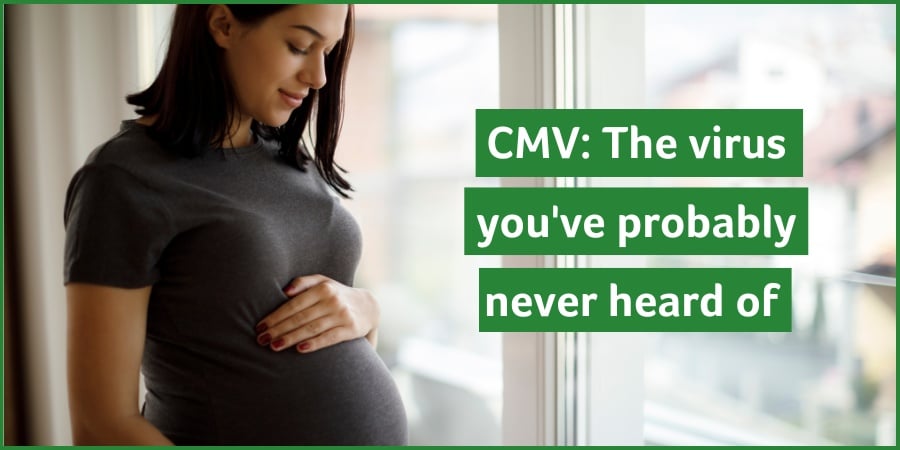
Although the news has been dominated by COVID-19, there’s another virus that’s been keeping our researchers busy.
It’s called Cytomegalovirus, or CMV for short, and almost all of us will get it at some point in our lives. While it’s completely harmless to most adults, if it’s passed from pregnant women to their babies, it can cause cerebral palsy and other disabilities.
CMV is a herpes virus and it’s passed from person to person via bodily fluids such as urine, saliva and nasal mucus. It is common amongst babies, toddlers and young children who can often remain asymptomatic whilst sharing the virus with each other and caregivers. Astonishingly, children can shed CMV in their urine and saliva for up to two years after infection.
Most people who contract CMV won’t even know they are infected, however for those who are immunocompromised (due to serious illness or cancer treatment, for example), this virus can be dangerous.
Pregnant women can also pass the virus onto their unborn baby. CMV can cause damage to the baby’s brain, leading to cerebral palsy, epilepsy, hearing loss, intellectual impairment, and, in rare cases, stillbirth and infant death.
Every year in Australia, around 2,000 babies are born with CMV. Around 400 of those develop lifelong disabilities. This makes CMV 20 times more common than well-known causes of complications in pregnancy, such as toxoplasmosis and listeria.
Thanks to your support, we’re helping to spread the word about CMV to all expectant mothers, so that they can take simple steps to reduce their risk of passing the virus onto their baby. These steps include:
Research says that just 1 in 6 pregnant women have heard of CMV, and only 10% of maternal health professionals regularly talk to pregnant women about this virus. We’ve developed resources for pregnant women, people who work with and care for young children, and health care professionals to help reduce the incidence of CMV infection in unborn babies.
Your support is powering us to find new, effective ways to prevent CP.
To find out more about CMV and access useful resources, visit: https://cerebralpalsy.org.au/research/research-projects-priorities/cmv/